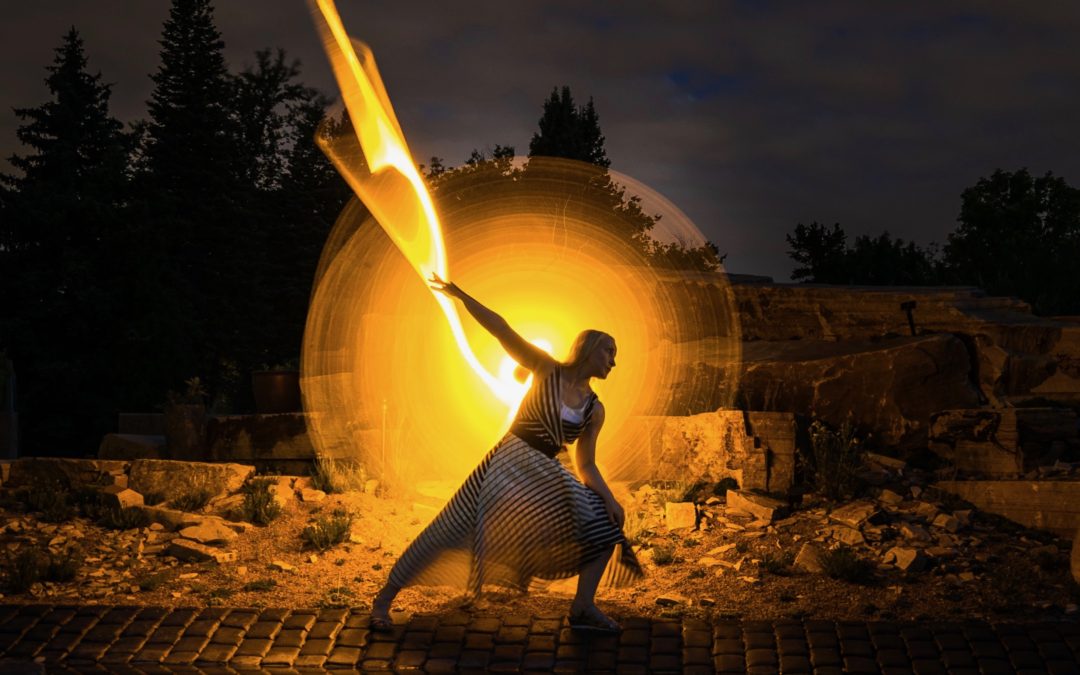- Anti-Racism Tip #8: If It Needs a Disclaimer, Don’t Say It - October 18, 2022
- On Tender Moments that Take Us By Surprise - May 18, 2022
- Finding Creative Ways to Exercise During the Pandemic - April 29, 2022
Lately I have been thinking a lot about the world we have built for our daughters. Specifically, I have been thinking about the fact that we have to prepare our daughters to deal with sexism and sexual harassment as a regular part of their lives.
With the #MeToo movement, there has been a lot of focus on the courage of women and girls in calling out sexual harassment and abuse. In many cases, the perpetrators of this abuse are powerful men. For so many years, we have known about powerful men who engage in disrespectful, discriminatory, non-consensual and, in some instances, abusive acts towards women. And during this time, we have seen little to no consequence for these powerful men. These men are still recognized for their athletic prowess, hold positions of corporate power, are still appointed to the Supreme Court, and still occupy the highest levels of government.
As a parent, I scroll through reams of headlines about powerful men being accused by many, many women of sexual abuse, rape, and coercion. And at the same time, I am keenly aware that I am raising a daughter in this society that fails to hold powerful men who act violently towards women to account.
Alongside all these news headlines, I have been seeing many articles aimed at parents providing tips on how to prepare our daughters to grow up in a sexist world. This article, for example, provide tips for what parents can say to their daughters and recommends having this talk as early as Grade 3 or 4.
Let me repeat that.
The article recommends that we, as parents, talk to our daughters about sexual harassment and abuse as early as grade 3 or 4. That means girls need to be prepared in how to react to an adult man leering or making inappropriate advances towards them when they are 8 or 9 years old. I hope you’re thinking the same thing as I am…
SOMETHING. IS. NOT. RIGHT. ABOUT. THIS.
Times have not changed (yet)
As I struggle to consider how to broach these topics with both my daughter and son, I’m struck with the fact that the times haven’t changed much from since when I was growing up.
I remember that as I grew up, I was acutely aware that adult men were getting into trouble around me for having relationships with teenaged girls. Not one, not two, but three male teachers from elementary through to high school were disciplined or fired for having romantic relationships with female students, some of whom were in their early teens.
One of these teachers had an extramarital relationship with a female basketball player he coached who was in grade 12 – she was my age at the time. The consequence for him was that retained his teaching position but was banned from coaching girls basketball after that. He was the Head Coach of the men’s basketball team the next year. This was an early lesson for me that men in positions of power would not face serious consequences for abusing their positions of power and influence to take advantage of young girls.
I remember when I was 17 hanging out at the beach with a bunch of friends. One of the people hanging out with us was pretty new to the group and had formerly been a professional athlete in a different sport. He was at least ten years older than me. We were all hanging out, having fun when he walked over to me, and without warning, grabbed my face in his hands, kissed me and jammed his tongue in my mouth. I pushed him away and said: “Gross!” He laughed. It was shocking, uninvited, and made me feel very uncomfortable. I made a mental note not be hang around alone with that guy again.
When I was 19 years old, I remember being told by different male beach volleyball player in his early twenties that he thought 13 to 14-year-old girls had the nicest legs and that women’s legs were never as nice because they get cellulite. It felt creepy to listen to an adult man talk about teenaged girls like this. And the fact that he felt comfortable saying this out loud to me was a terrible reminder that adult men sexualizing teenaged girls is both normal and accepted in our society.
When I was in my mid-20s, I was at a bar after a beach volleyball tournament. A man who had watched me play earlier in the day showed up. He was physically quite large and as I walked by on my way back from the washroom he stopped me and tried to engage me in conversation. He kept putting his arm around my shoulders, pulling me towards him or stepping in front of me as I tried to leave to go back to my group of friends. Finally, a male beach volleyball player and friend of mine came over to “rescue me” (thanks Ahren!). He introduced himself as my boyfriend and was able to extract me from that uncomfortable situation.
As a previous house where Robby and I lived, there was a group of men who would sit in their front yard drinking and cat call women who walked by. This routinely happened to me on my walk home from the streetcar stop. My neighbour had also being harassed and made to feel both uncomfortable and unsafe by these men. Later, we talked about this and realized that both her and I had started walking several blocks out of the way to avoid this nightly unwelcome interaction.
And then there was the Christmas party incident…
A couple of years ago, I was at a Christmas party having a great conversation with a male lawyer I know. An acquaintance of both of ours walked up. He is a tall, entitled, White guy with a overbearing personality. He is about the same age as I am. This man inserted himself in the conversation, looked at me, patted me on the head, and said: “It’s time to let the adults talk now.” (It kind of makes me laugh now but only because it is so awful.)
These are just a handful of incidents that I recall because I had a visceral reaction to them – they made me deeply uncomfortable and made me really, really angry. It was clear that they were sexist. I bet most women could list many experiences they have had throughout their lives that were sexist too. Unfortunately, for many women these experiences were far, far worse and have left them with lasting scars they have had to carry for the rest of their lives.
Preparing our daughters for war
Now as a parent, I worry about how to prepare my daughter for all the sexism she will face to help keep her safe in this world. A couple of months ago my daughter asked me to play Roblox with her. She wanted to show me a game called Waterpark. It involves going up the stairs and down many different waterslides. You can also swim in the pool, sunbathe and get a lemonade. Fun, right?
But then…
As I was playing along with her, I noticed that the chat was all about sex. Adult men were trying to engage with other players in dirty sex talk. I was livid and appalled that this game, which was clearly designed for 4-8 year-olds, was being used by adult men, at best, to satisfy their own sordid desires, and at worst, to lure young girls into dangerous conversations and situations.
I considered my options and instead of deleting the game, I disabled the chat. But I still feel queasy knowing that all these men are playing alongside us in the game and all these young girls and boys are playing in there and being exposed to this stream of inappropriate sexual content and sexist behaviour.
The Waterpark incident made me angry.
I realized, at that moment, that no matter what we tell our daughters, no matter how much we prepare them, no matter how much we try to protect them, they will inevitably be exposed to sexist comments, sexual harassment and mistreatment. This is the world that we live in and the status quo that we accept.
This realization is even more frustrating because I remember sitting in my Women’s Studies 101 class in university over 20 years ago and thinking that we can, in fact, change the world. But maybe Audre Lorde is right… we can’t dismantle the master’s house using the master’s tools.
And so we’re forced to continue to raise our girls as warriors – to raise them to stand up for themselves, to be assertive, to think ahead, to plan for their safety, to scream for help, to learn to fight, and to struggle when they are attacked. We’re forced to raise them to understand that it is both common and expected for adult men to sexualize them as young girls and teenagers. We’re forced to raise them to understand that sexism will punctuate their lives. We’re forced to explain to them that they may, indeed, be blamed for their own victimization. And they will learn, just as I did, that powerful men who harass and abuse girls and women will be idolized and treated with impunity.
So what can we do?
Like in most of these articles, I have a couple of tips to share. To the men who are reading this:
Do better and be better.
Don’t abuse, harass, or rape women or girls.
Don’t feel entitled to female attention or justified in behaving disrespectfully when a woman just isn’t into you.
Don’t remain quiet when another man is behaving inappropriately.
Don’t participate in activities that objectify and sexualize women.
Don’t point to all the great things a man has done who has sexually harassed, raped or abused a girl or woman.
Don’t highlight how men who sexually harass, rape or abuse girls or women’s life would be ruined if they were held accountable or sent to jail.
Don’t make excuses for men’s bad behaviour like “there’s a lot of pressure being in the public eye.”
Don’t lay the blame for harassment, abuse or rape on the women who has been victimized….ever.
Don’t make that sexist jokes.
Don’t hide behind the anonymity of the internet to participate in sexist activities or make sexist remarks.
Don’t idolize, elevate or advocate for men who are openly misogynistic and promote toxic masculinity.
Don’t… just don’t.
Finally to parents who are wondering what to do. Here’s the big tip:
Raise your sons to be better men.
Talk to them about what sexist behaviour is and make it clear that it’s not acceptable.
Teach them to respect girls’ and women’s dignity and bodily integrity.
Teach them about consent.
Teach then not to harass girls or women who clearly communicate they are not interested in them.
Raise them to speak to, with, and of girls and women respectfully.
Raise them to be men who stand up against sexism.
Raise them to be men who say enough is enough when other boys and men are acting in a misogynistic or sexist manner (even when girls or women aren’t present in the room).
And in the meantime, we’ll keep raising our daughters as warriors. And we’ll stand up and fight for a day when our daughters will no longer have to have to face sexism in their lives anymore.
Photo by Xuan Nguyen on Unsplash
We would love to hear your thoughts and reflections in the comments section below the article.


Recent Comments